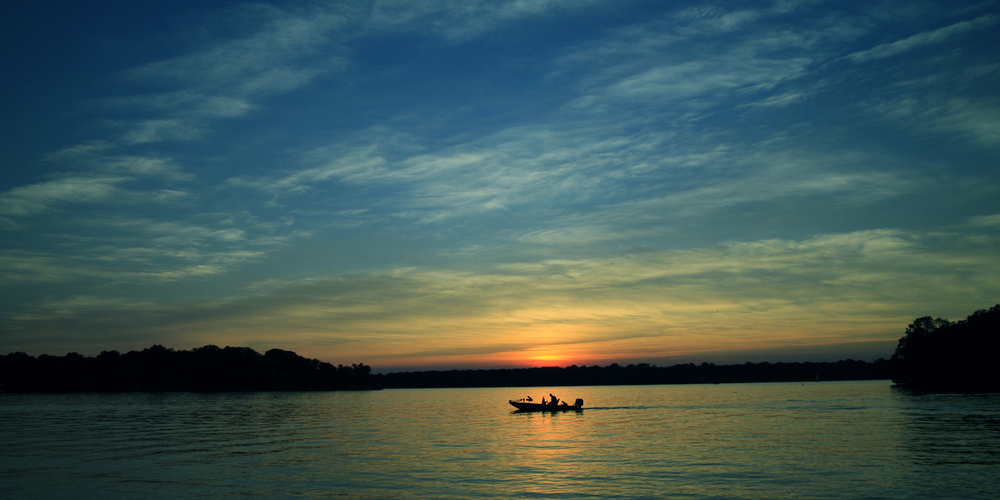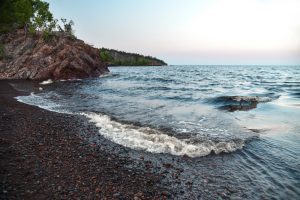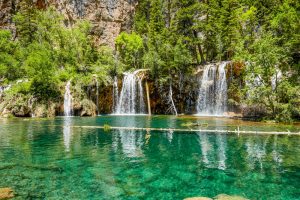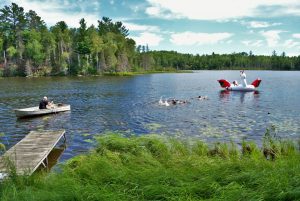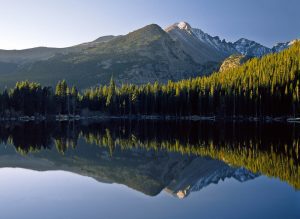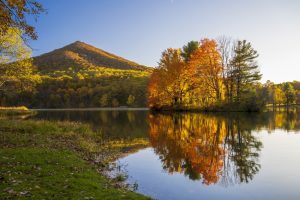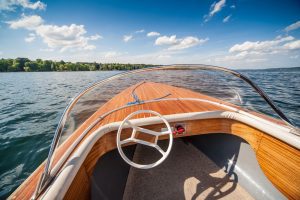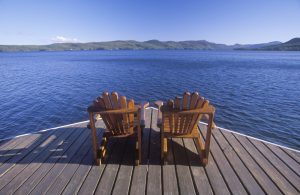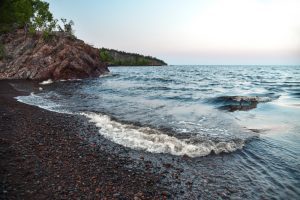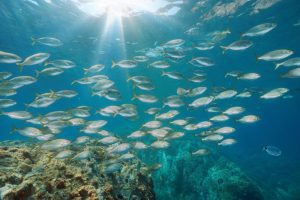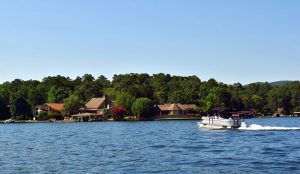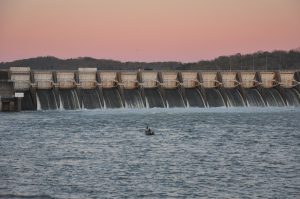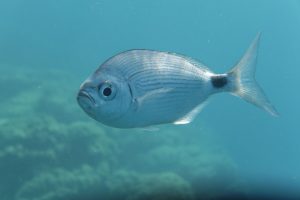With over 1,000 lakes located throughout the state, you’re never too far away from a world-class fishing spot when you’re in Tennessee. Additionally, there are nearly 300 native fish species estimated to be swimming these waters. Knowing all that, it should come as no surprise that Tennessee is ranked at the top of all states when it comes to fishing license sales.
That being said, some bodies of water are better for reeling in keepers than others. So, whether you’re a tourist looking for the best lake to sink a line or a Tennessee native searching for a new place to drown some worms, keep reading to discover the all-time best fishing lakes in Tennessee.
Table of Contents
1. Reelfoot Lake
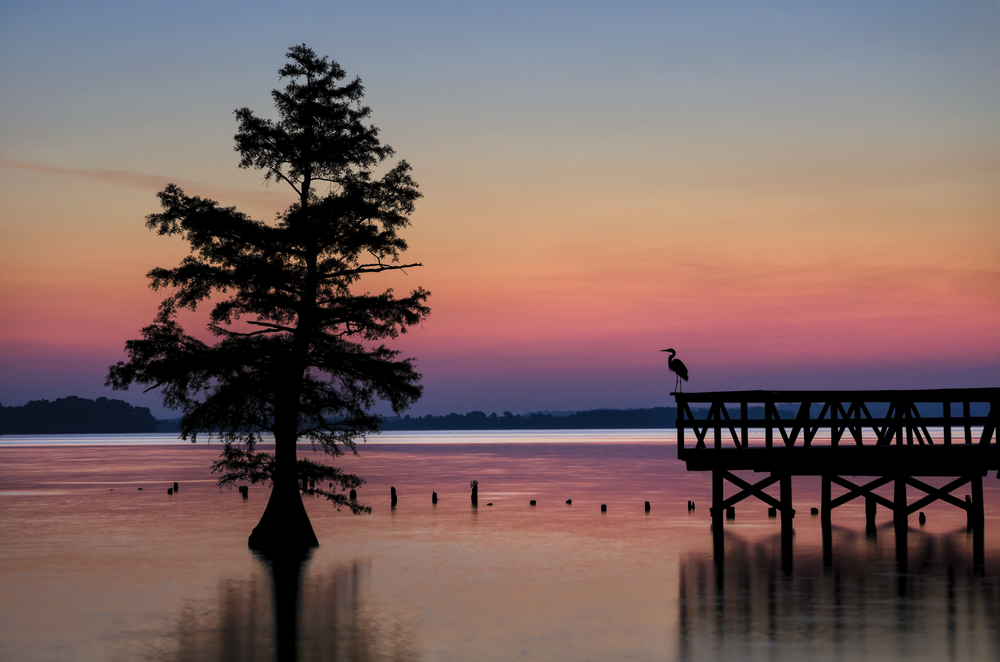
As the largest natural lake in the state, Reelfoot Lake is undoubtedly one of the best fishing spots in Tennessee. Situated in the state’s northeasternmost corner, Reelfoot Lake is steeped in history, local legend, and of course, plenty of hungry fish.
The lake was created in the early 19th century after a series of earthquakes along the New Madrid fault line. This caused a chain of strange geological events, and here’s where the legend part comes in. To hear the locals talk of it, the Mississippi ran backward for seven days and seven nights after the earthquakes hit the area surrounding the lake.
Whether the myths surrounding Reelfoot Lake are true or not, there’s no doubt that the close-knit community surrounding it is rich in culture. If you’re looking for some of the best fresh-caught fried catfish in the south, don’t miss the town of Samburg, located on the lake’s western edge.
If you prefer to catch your own dinner, the lake’s shallow waters create some epic fishing conditions. If you can, head out in the spring for your best chances of reeling in one of the 50 different species that call this lake home. Some of the most common catches here include panfish (specifically bluegill and crappie), freshwater catfish, largemouth bass, and carp.
While you fish, you will also be spoiled with a beautiful backdrop. Towering cypress and mangrove trees make an excellent habitat for a wide variety of birds, and if you’re lucky, you may spot bald eagles and other species of waterfowl on the hunt for dinner.
2. Kentucky Lake
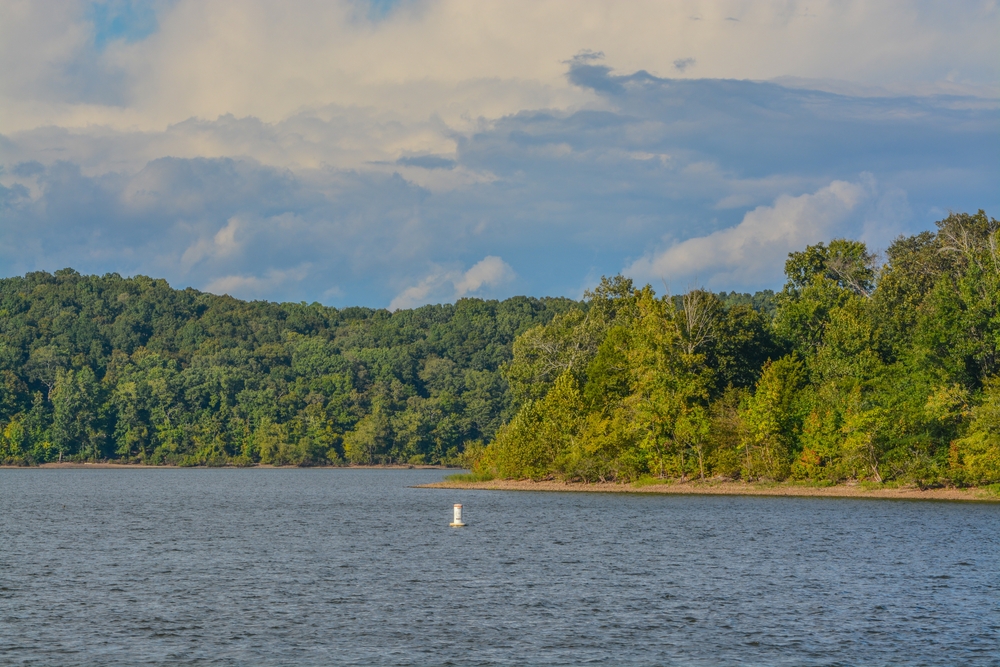
Situated along the border of Tennessee and Kentucky is another one of the state’s best fishing lakes. Kentucky Lake is the largest artificial lake in the eastern United States, measuring over 180 miles wide.
Kentucky Lake was created in 1944 after the damming of the Tennessee River. Since then, The Land Between the Lakes National Recreation Area has been made to protect a wide variety of its native flora and fauna.
Luckily for anglers, this includes a plethora of fish. Kentucky Lake is often considered one of the best sports fishing lakes in the country, and numerous bass fishing tournaments take place here year-round. Other species that swim in these waters include yellow perch, crappie, catfish, sauger, and bluegill.
Suppose the fish aren’t biting during your visit to Kentucky Lake. In that case, you’ll find plenty of other outdoor activities to keep you busy, including boating, hiking, and camping along the lake’s scenic shoreline. If you’re looking for a unique experience on this famous Tennessee lake, consider renting a houseboat for the duration of your stay.
3. Lake Barkley
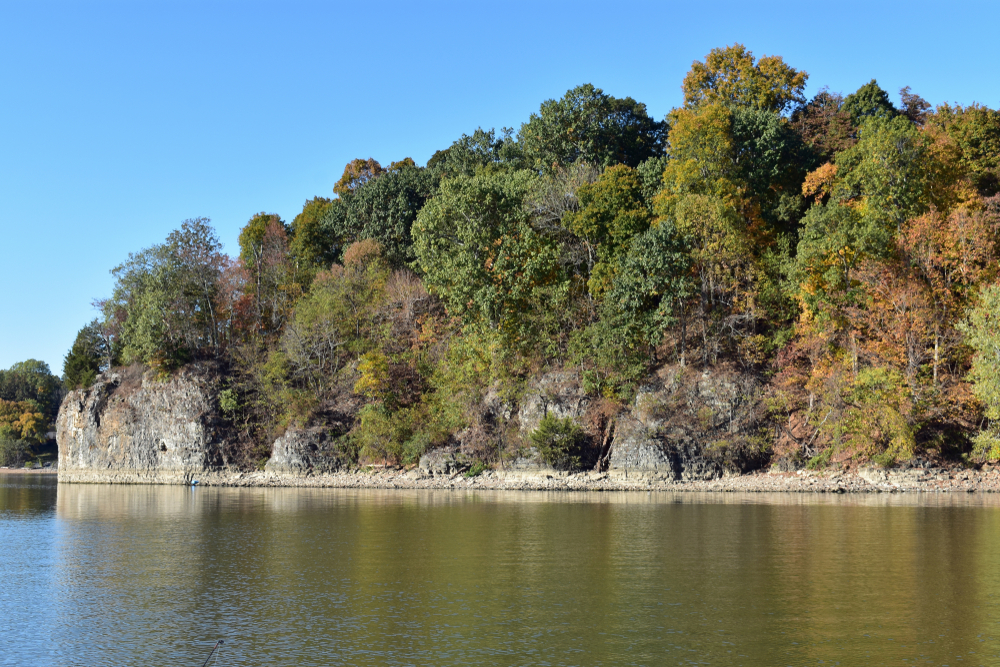
Running parallel to Kentucky Lake, Lake Barkley is the other lake in The Land Between the Lakes National Recreation Area. Just like its counterpart, Lake Barkley is one of the best fishing holes in Tennessee, and at 58,000 acres, this massive body of water is home to quite a wide variety of species.
Lake Barkley is 134 miles wide, which is slightly smaller than Lake Kentucky. Make no mistake, though, this lake is full to the brim of hungry fishies. Common catches here include crappie, largemouth and white bass, catfish, sauger, and bluegill.
While about two-thirds of the lake is actually situated in Kentucky, the water on the Tennessee side gets warmer earlier. This means that come spring, the bass start spawning earlier here than on the Kentucky side – great news for Tennessee anglers!
4. Pickwick Lake
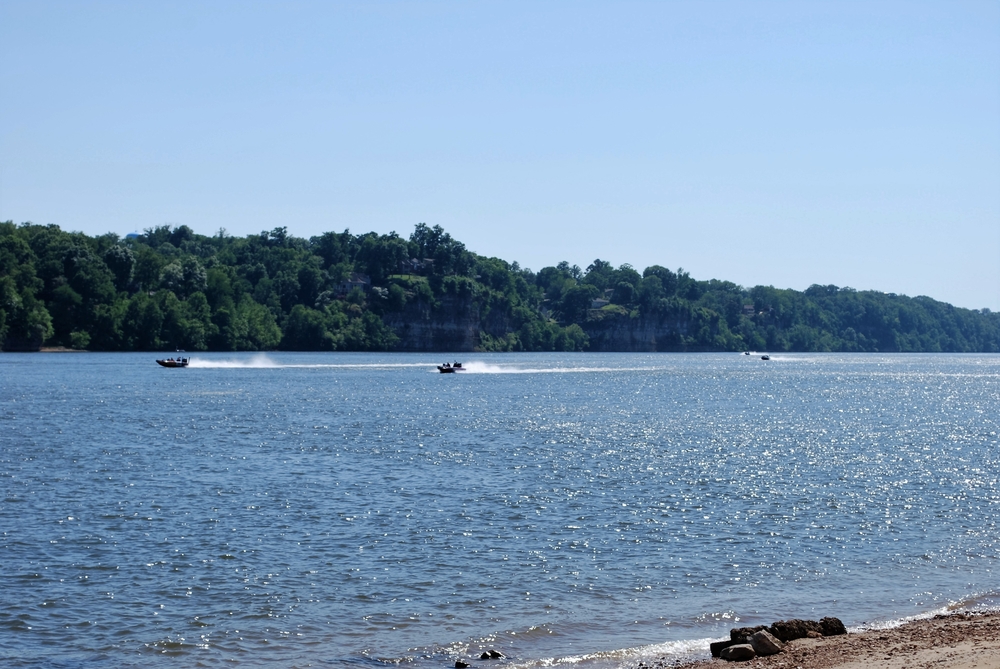
Nestled between Pickwick Landing State Park and the Wilson Dam along the border between Alabama and Tennessee, Pickwick Lake is one of the best fishing lakes in the state.
This Tennessee treasure is another by-product of the damming of the Tennessee River, and the fishing opportunities here are great year-round. Consider starting your day at the upper end of the reservoir in the Wilson Dam tailwater as this area is known for its large numbers of record-size smallmouth bass and catfish.
Spring is the best time for trolling Pickwick Lake, and common catches at this time of year include sauger, big slab crappie, and stripers.
No matter what time of year you visit, don’t miss your opportunity to explore Pickwick Landing State Park. Here you’ll find some scenic campsites, along with other fun recreational activities that the whole family will love.
5. Gibson County Lake
At just 500-acres, Gibson County Lake is far from the largest lake in the state, but it does boast some excellent angling opportunities. Gibson County Lake is located in northwestern Tennessee, about an hour north of Jackson.
Crappie, bluegill, redear sunfish, and blue and channel catfish are all abundant at Gibson County Lake, but the real draw to this reservoir is the bass. There are reports of 11-pound bass being pulled out of the lake, and whether this is fact or fiction doesn’t stop anglers from around the state from trying their luck here.
6. Center Hill Lake
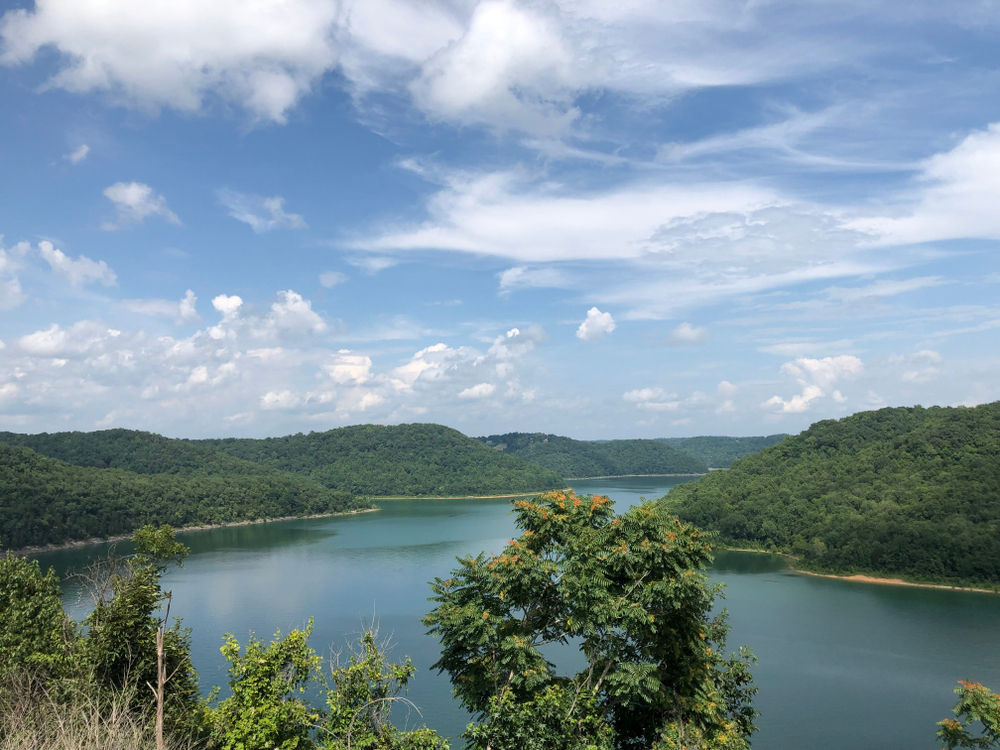
Situated about halfway between Nashville and Knoxville sits another one of Tennessee’s best fishing lakes – Center Hill Lake. This deep, artificial lake sits atop the Cumberland Plateau and was created in 1948 when the U.S. Army Corps of Engineers impounded the Caney Fork River.
The dam was constructed to produce electricity and allow for flood control, but coincidentally, it also became one of the best fishing holes in the entire state. Not only is Center Hill Lake a great place to cast out, but it’s also exceedingly beautiful, with rolling hillsides and jagged bluffs surrounding the water. You could consider yourself lucky to catch a postcard-perfect sunrise here, but most of the fishing action takes place after the sun has set.
Night fishing will give anglers the best chance of reeling in bass (largemouth, smallmouth, and spotted), especially if there is a western wind. However, even on still nights, your odds are pretty good – just be sure to sink your line a little deeper.
7. Percy Priest Lake
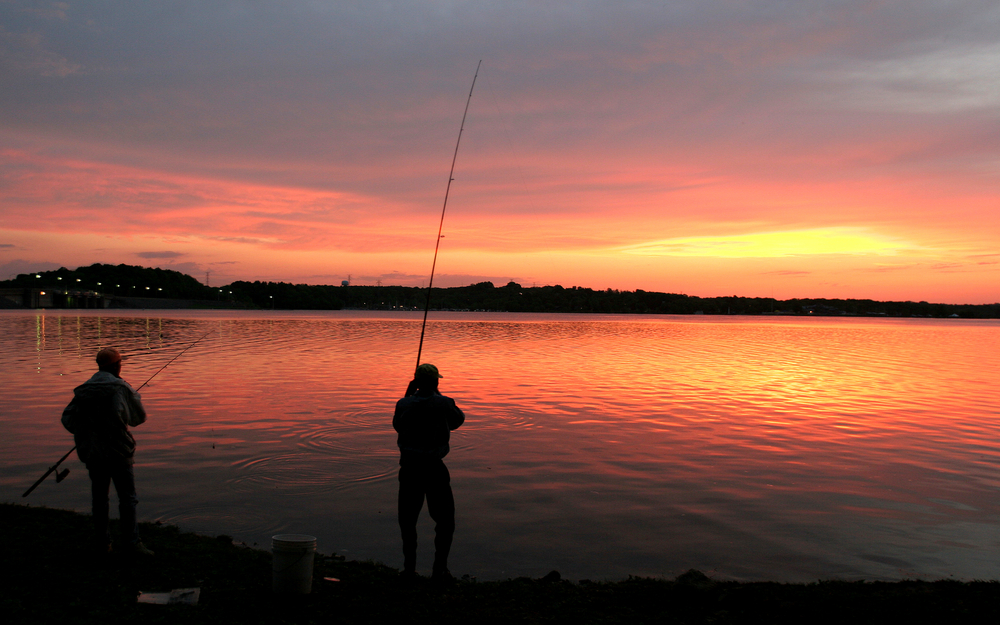
One of Tennessee’s most popular summer hangouts is also one of the best fishing lakes in the state. Percy Priest Lake is located just a few minutes east of downtown Nashville off of Interstate 40, making it easily accessible to residents around the capital city.
Percy Priest Lake is a 14,200-acre artificial lake that came about after the Stone’s River was impounded back in 1967. Since then, this lovely body of water has enticed families to its shoreline for camping, hiking, swimming, and of course, fishing.
While almost all of Tennessee’s native fish species can be found at Percy Priest Lake, bass is the main draw here, and you’ll find virtually every species of this sought-after fish swimming these waters. That being said, the Tennessee Wildlife Resource Agency monitors the population here, and there are daily size and creel limits.
Crappies are another popular catch at Percy Priest Lake, and if the conditions are right, you’ll have no problem catching and keeping your limit. Fishing for catfish is almost entirely unregulated at Percy Priest, and you’ll find especially large specimens near the dam – just be sure to hold on tight to your pole!
8. Dale Hollow Reservoir
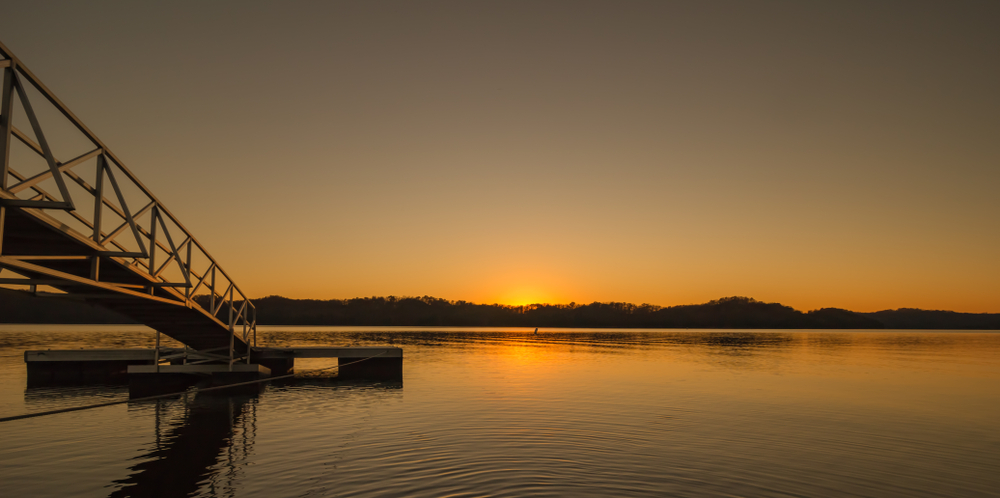
Renowned for its premier bass fishing, Dale Hollow Reservoir is undoubtedly one of the best fishing lakes in Tennessee. In fact, it’s actually one of the best fishing lakes in the nation. The reservoir is also incredibly scenic, thanks to the unspoiled shoreline and incredibly clear water.
The Dale Hollow Reservoir is a result of the damming of the Obey River, though parts of the lake also cross Wolf River. The reservoir is perched along the Tennessee-Kentucky border and beckons both boaters and anglers to its waters year-round.
Fishing is especially fruitful in autumn, and you’ll find walleye, muskellunge, and various species of bass swimming in these crystal-clear waters.
Casting out for smallmouth bass is especially popular at the Dale Hollow Reservoir. This is due mainly to the fact that the world’s largest smallmouth bass ever caught came from this lake – weighing a whopping 11 pounds 15 ounces! While it has been over 60 years since one lucky angler reeled in that beast, who knows, there may be even larger specimens swimming beneath the surface as we speak!
9. Cordell Hull Lake
At 12,000 acres, Cordell Hull Lake may not look like one of Tennessee’s best fishing lakes at first glance. But what it lacks in size, it more than makes up for in quality fishing opportunities, and no matter what time of year you cast out, you’re sure to reel in a keeper.
During the summer months, Cordell Hull Lake plays host to families looking to enjoy the beautiful scenery that surrounds the upper Cumberland River where the lake is located. The lake is stocked with bluegill, catfish, and bass year-round, and these species are especially plentiful below the dam.
After the summer crowds go home and the skies turn grey, Cordell Hull Lake transforms into one of the best lakes for sauger fishing in the entire country. This type of fish sits at the bottom of the channel, waiting for food to be brought in by the current. Troll slowly against the current and cast out into the underwater eddies for your best chances of reeling in a heavy sauger.
Make sure you have plenty of winter gear along for your fishing trip – frostbitten fingers won’t help your chances of catching a keeper!
10. Old Hickory Lake
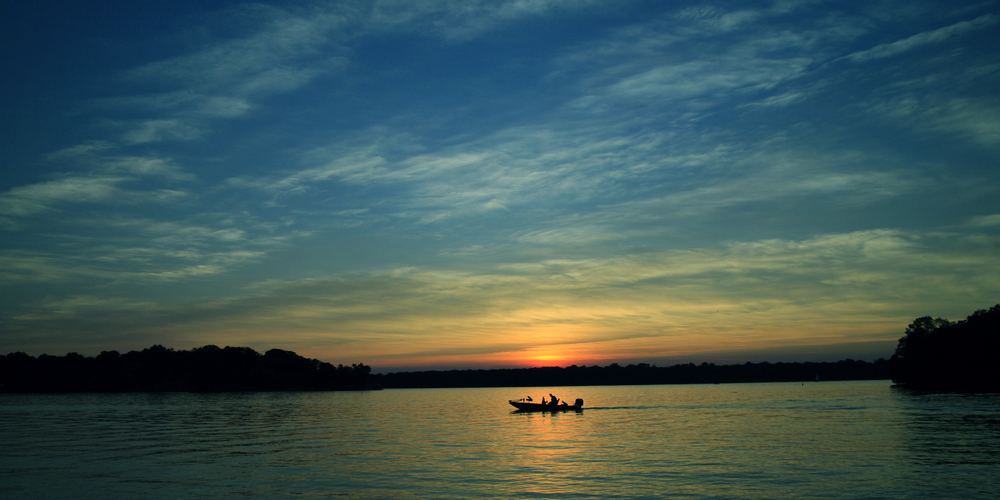
Home to two national record catches, it should come as no surprise that Old Hickory Lake is one of the best fishing lakes in Tennessee. Situated about 30 miles northeast of Nashville, this lovely lake boasts over 500 square miles of water and shoreline. Popular with beach bums and anglers alike, Old Hickory Lake is not to be missed.
The best fishing conditions are in the spring, and you’ll find an abundance of bass, crappie, and catfish swimming beneath the surface. Aside from fishing, kayaking, paddle boarding, jet skiing, and swimming are all popular pastimes on Old Hickory Lake.
Once you’ve had enough of the water, you can enjoy the lake from its scenic shoreline. Soak up some sun on a sandy beach, hike the trails in one of the many parks, or rent a campsite for a night or two to make the most out of your fishing trip.
11. Fort Loudoun Lake
Located in eastern Tennessee along the Tennessee River is the glorious Fort Loudoun Lake. During the 18th-century French and Indian War, the British built a fort (Fort Loudoun) along the river. The fort still stands to this day and is a part of the larger Fort Loudoun State Park.
While the history around the lake is fascinating, fishing is one of the main draws here. You’ll find a wide range of species swimming these waters, including bass, crappie, walleye, sauger, and some seriously massive catfish. The Tennessee Wildlife Resource Agency also stocks Lake Sturgeon into the rivers that flow into Fort Loudoun Lake, though they are endangered and therefore strictly catch and release.
Even if you fail to catch dinner, Fort Loudoun Lake is a beautiful place to spend the day. Keep your eyes peeled for bald eagles – they are known to fish these waters as well. More epic birdwatching can be done inside the state park, as can hiking, camping, and exploring the old fort.
12. Douglas Lake
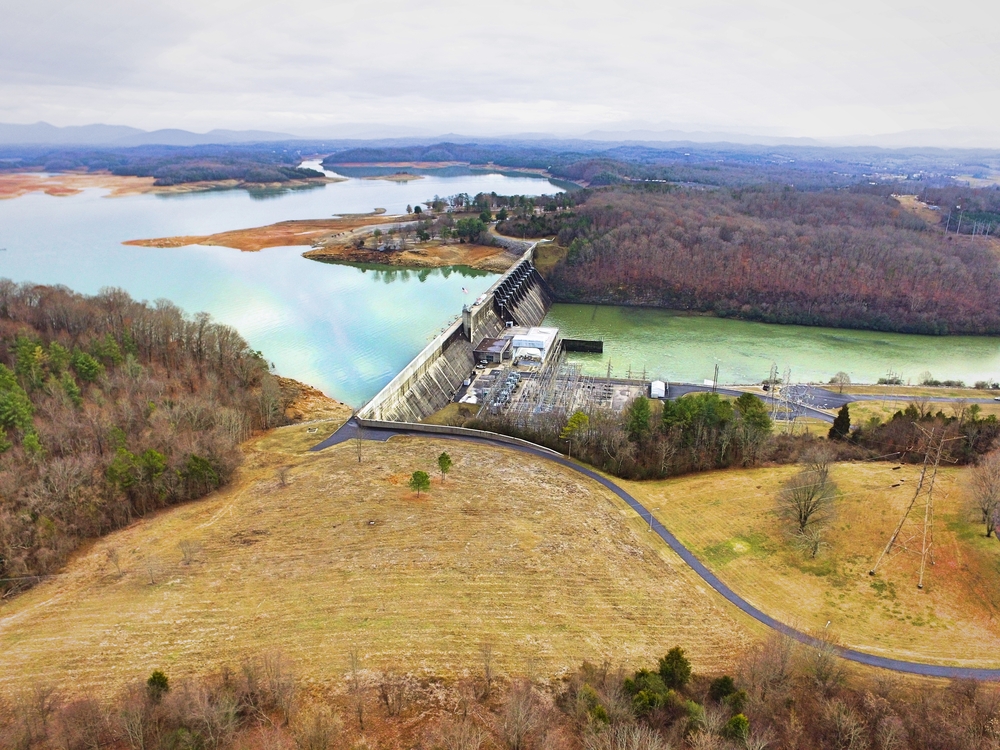
Tucked away into the misty peaks just a few miles outside the Great Smoky Mountains National Park, Douglas Lake certainly sees its fair share of tourism. Breathtaking views of unspoiled nature, an abundance of flora and fauna, and world-class fishing all make Douglas Lake a popular place to visit year-round.
With over 555 miles of complex shoreline, anglers will have their pick of places to cast out. From rocky bluffs and rolling hillsides to dense forests and residential farmland, Douglas Lake offers both shallow coves and deep expanses of water for anglers to explore.
The lake is renowned for fishing opportunities and is often considered one of the top ten lakes in the country for reeling in both largemouth bass and crappies. Other common catches out of Douglas Lake include bluegill, sauger, and white bass, among others.
13. Woods Reservoir
Situated on the outskirts of the Arnold Air Force Base about halfway between Nashville and Chattanooga, the Woods Reservoir is a quiet reprieve from some of the other more popular lakes in the state. It’s also one of the best places for anglers to drop a line, and it is rated amongst the top three lakes for crappie fishing in the state of Tennessee.
In addition to the large population of crappies, anglers will also find plentiful amounts of muskie, walleye, catfish, and largemouth and smallmouth bass in the Woods Reservoir. If you’re after largemouth bass, you’ll have the best luck in the upper half of the lake.
14. Calderwood Reservoir
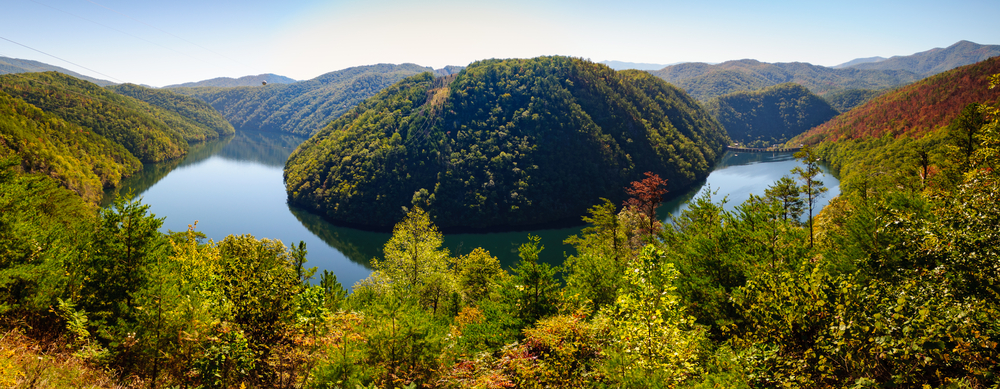
One of the lesser-known fishing holes in Tennessee is the Calderwood Reservoir, located in the easter part of the state near the North Carolina border. This little 514-acre lake is well off the beaten path, though once you visit, you may wonder why the rolling hills and forested landscape don’t attract more visitors.
However, anglers looking for a secluded spot to fish for an afternoon will be happy that Calderwood Reservoir isn’t as renowned as some of the other top Tennessee fishing spots. Common catches here include largemouth and smallmouth bass, black crappie, trout, and rock bass – which are by far the most abundant species in the Calderwood Reservoir.
15. Watauga Reservoir
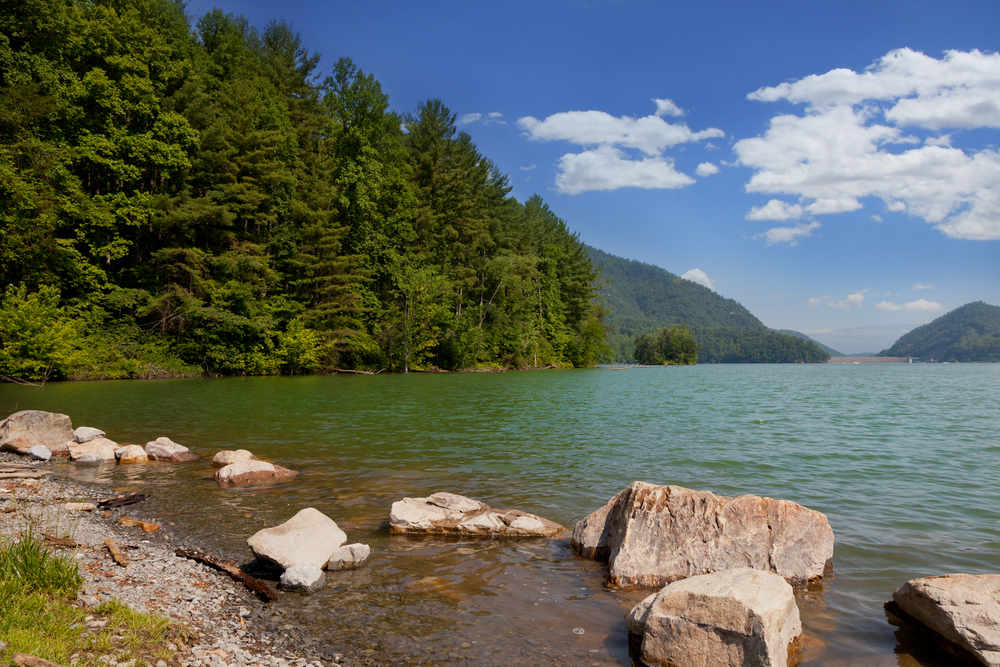
Follow the North Carolina border a bit further north, and you’ll run into the beautiful Watauga Reservoir. Located just east of Elizabethton, this 6,430-acre reservoir was created when the Watauga River was impounded in 1948.
The views along the reservoir are simply stunning, and the Cherokee National Forest surrounds much of the lake’s 106-mile shoreline. Part of the Appalachian Trail also runs along the lake’s northwestern edge and encapsulates some of the most scenic views of Watauga Reservoir.
The lake is good for more than just scenic views, however. Boating and swimming are also popular summertime activities, and the fishing here is some of the best in the state. Bank fishing is especially well-loved here, and you’ll find plenty of places along the lake’s edge from which to cast out. Common catches at Watauga Reservoir include smallmouth bass, walleye, and trout, among others.

